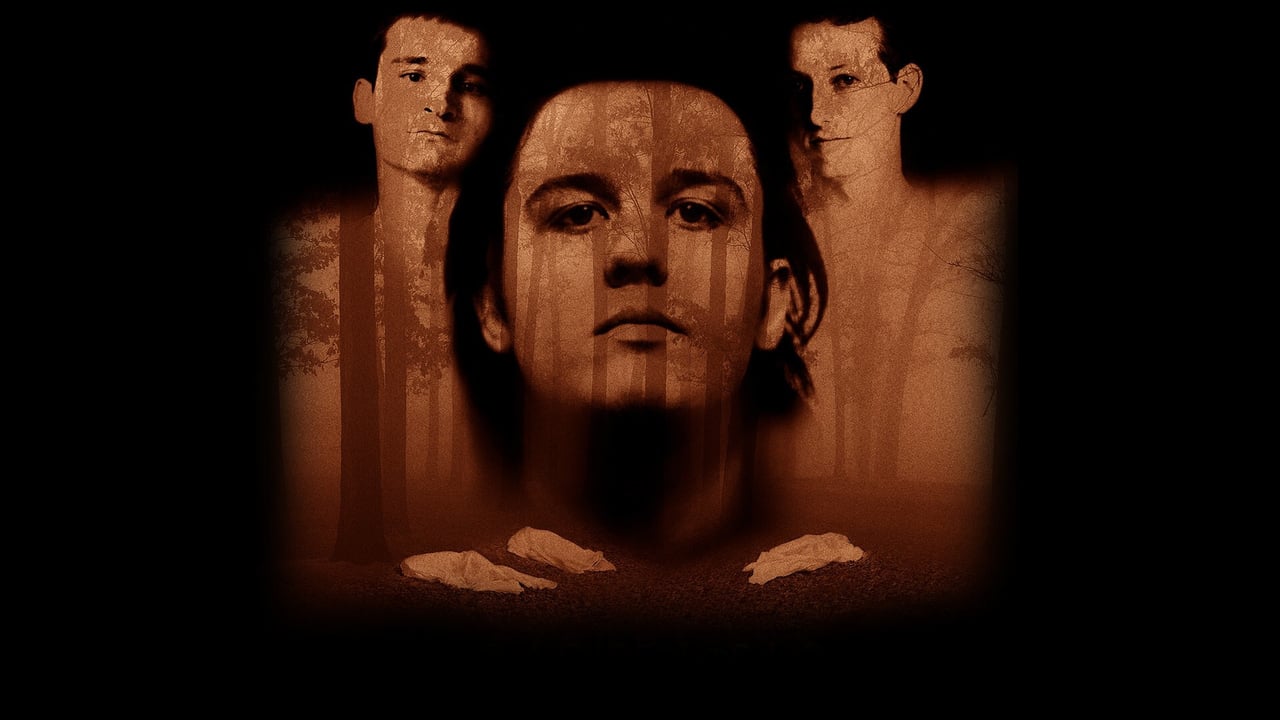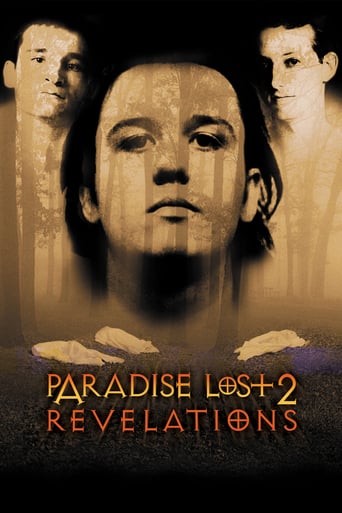MisterWhiplash
It's strange to come to write about Paradise Lost 2: Revelations having watch some (though not all) of the third and final entry from 2011, part 3 Purgatory (which was made the same year the West Memphis 3 - Damien Echols, Jessie Misskelley Jr., and Jason Baldwin - were finally released from prison due to an unusual 'plea' deal). I say this because by the time one watches that film, shot some 12/13 years after the second entry which was shot four years after the original Paradise Lost (93/94 in Arkansas), a key character (and I use the word Character I should say with a capital C) with John Mark Byers has changed. Hindsight is always 20/20 as the saying goes, but it is still captivating and kind of horrifying to see how Byers, and not necessarily the three (at the time) convicted killers, becomes the main character here.I have to wonder if the filmmakers went into the project knowing exactly what they would do; part of the impetus was to go back to the area in Arkansas as Echols in 1998/99 was facing a very urgent appeal process in court (with the original judge in the case, I'd say unfortunately), and also by this time the effect of the first Paradise Lost doc was such that the film itself was available as evidence for the defense. Ironically though because of the notoriety, the filmmakers Berlinger and Sinofsky weren't allowed in the courtroom, and the parents of the victims (seen in part 1) declined to be interviewed... except for Byers' stepfather, and his mother by this point had died. What did she die from? Well, that's kind of a funny story...Although the filmmakers here have access to the West Memphis 3 (Echols seems to get the most time since it's his appeals process as the focus), as well as one of the defense lawyers and a special investigator who can spot things that should have been clear to the cops at the time of the killings, and there is the group that formed to help free men and how they set up the website and (as a running thing in the movie) having an online chat for people on the site with Echols, the lack of being in the courtroom and certain subjects makes things a little more limited. It's through no fault of their own, but the filmmakers probably had to scramble to find some way to make the film more compelling. Needless to say, Mr. Mark Byers ended up, through his own sense of either mania or ego, said 'I'm here!' The running thing with Byers is that certain people around him - neighbors, especially those who, for example, claim (rightfully so) that he and his formerly-living wife stole things from their homes, or just people in town - don't trust him. More to the point, Byers is looked at as an outside-probably-yeah suspect as the actual murderer of the kids (the step-father of one, and the kid had a history of abuse that wasn't really put forward until this doc). No real attempts are made by the authorities to go after him, which seems about right given how steadfast the chief (retired) officer is with the results of the case), but all the same Byers, who does things like YELL into the camera in full close-up for his enemies and doubters to go to hell and so on and keeps getting into confrontations with the Free West Memphis people (who aren't looking for any confrontation and want to ask simple questions), isn't having it. So how about a polygraph test? This latter part makes for the most compelling and darkly twisted (for me) part of the documentary. Arguably there's a moment, in an informal conversation with the tester before the actual polygraph, where Byers admits to murdering his wife (Freudian slip one might say, but it's a 'whoa whoa WHOA' moment), and he says to the tester that he's on a mixture of pills to fight his 'brain tumor' (does he have it for real, who knows). But this makes for a chilling centerpiece to what is otherwise a kind of warped piece of theater for Byers. He is someone who PLAYS to the camera, whether he knows it or not; he mostly does know it, you can tell, in a way where it's kind of either bad acting, or a level of just 'he does believe this, but what's in his head?' He becomes one of the most striking personas I've seen in a modern documentary, and whether you think he's a killer or not, as he WAS a criminal (at the end of the film the text says he's arrested and put to jail for some time for drug dealing to a narc) and it makes for an ambiguous treatment.The focus on the case itself is sharp and interesting too,, the new evidence all the more troubling, albeit at times there's a reliance a bit much on footage from the past movie. But it's sad just how much of a miscarriage of justice went on, through perception of young people, Wiccans and the "Occult" (which the expert on camera refutes and it's easy to see from the pictures too), and throughout people like Echols make for the opposite side of someone like Byers: a lucid, calm, but seemingly decent person who has been put into a position where it really is LIFE or DEATH. The viewing experience may be slightly colored by what comes in part 3, or just what happened in the real world to the West Memphis 3, but it doesn't diminish the impact of this documentary with this real force of nature in the ultimate hulking-talkative-WTF redneck John Mark Byers. If nothing else, see it for him.
BludgeoN
There are a couple of ignorant comments that I wanted to address from other posters here. Firstly, The individual who stated that the filmmakers spent the most time on screen was totally wrong, as the filmmakers NEVER appeared on camera. I think this person was referring to the group that was dedicated to freeing the "West Memphis Three." These were just more characters in the story, not the filmmakers. Also, another person pointed out that the polygraph test as if it were indisputable proof that the step-father had not done this crime. I don't agree. 1.He was taking alot of drugs, not to mention he was obviously mentally challenged. 2. right before he took the test, he was obviously lying about a great deal of things (he said he never had trouble with the law, he said he did not know how his wife died, and in the very next sentence referred to the "murder" of his wife, etc.)3. he had spent a great deal of time convincing everyone and himself that he had not done it, that he may just have believed it. Now, He may or may not have been responsible, I am not going to try and convince anyone, but at least pay attention when making your decisions. It just doesn't make sense to me that those boys did this when you look at the evidence. The first film did a better job of presenting the case than this one, but part two is a great continuation of the case. It would have been pointless to cover too much old ground. So if you are able to find part one anywhere, or it comes on HBO again, watch it if you have not.
CharltonBoy
Paradise lost 2 is the follow up film to the first documentary about the Robin Hood Murders. This film shows us how the convicted boys have been coping since they have been in prison and how the murdered boys parents have dealt with the past few years. This film also focuses on more evidance that these boys are not guilty and how there is growing speculation on one of the murdered boys father that he is responsible for the 3 boys deaths. Yet again the film gets far to graphic , why do we have to see pictures of the castrated murdered boy? We do have an imagination HBO, and we can use it. The father who is under suspision comes across as a horrible man who looks as if he is a mixture of a drug addict,a bible basher and inter breading but having said that most of the people we see from Arkansas look and come across as being like that. I do feel this film is heavily biased towards the convicted boys but i also feel they should never have been convicted in the first place. 8 out of 10.

